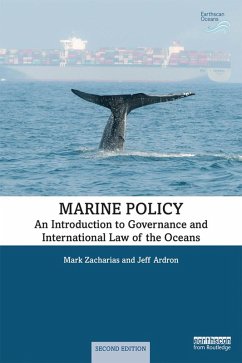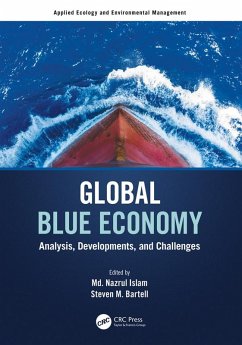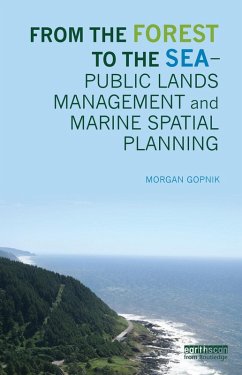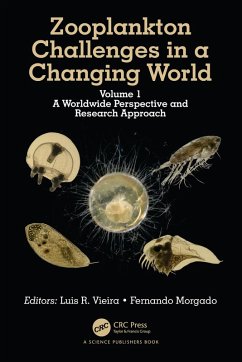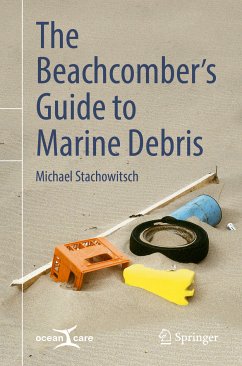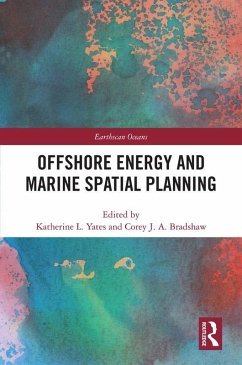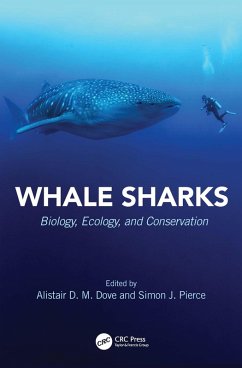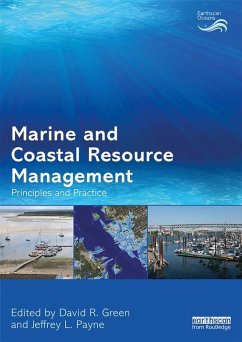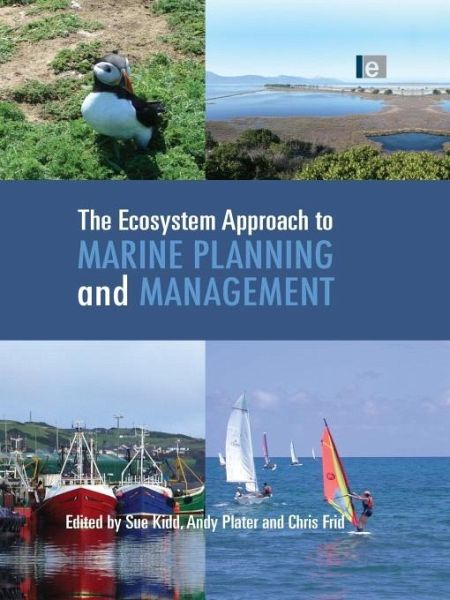
The Ecosystem Approach to Marine Planning and Management (eBook, PDF)
Versandkostenfrei!
Sofort per Download lieferbar
61,95 €
inkl. MwSt.
Weitere Ausgaben:

PAYBACK Punkte
31 °P sammeln!
The marine environment is one of our most precious yet fragile natural resources. It provides a wide range of essential goods and services, including food, regulation of climate and nutrient cycling, as well as a setting for transport, recreation and tourism. This environment is however extremely complex and very sensitive to development pressures and other forms of human influence. Planning and management of the sea are similarly complicated, reflecting intricate legal, institutional and ownerships patterns. This creates a situation where marine ecosystems are vulnerable to over-exploitation ...
The marine environment is one of our most precious yet fragile natural resources. It provides a wide range of essential goods and services, including food, regulation of climate and nutrient cycling, as well as a setting for transport, recreation and tourism. This environment is however extremely complex and very sensitive to development pressures and other forms of human influence. Planning and management of the sea are similarly complicated, reflecting intricate legal, institutional and ownerships patterns. This creates a situation where marine ecosystems are vulnerable to over-exploitation or neglect.
The Ecosystem Approach to Marine Planning and Management describes how growing concern about the state of our seas is resulting in the development of new approaches to marine planning and management. For example, the United Nations Environment Programme has called for the widespread introduction of Marine Spatial Planning (MSP), and the European Union has recently been consulting on a new European Maritime Policy designed to stimulate economic growth but at the same time protect the resource base. Within the United Kingdom, the 2010 Marine Act draws upon the experience of town and country planning and brings into being a new system of Marine Spatial Planning. The authors show that a common feature of all these developments is an appreciation that more integrated forms of planning and management are required for our seas and that new arrangements must draw together understanding from natural science, social science and many other perspectives. Adopting such a trans-disciplinary and holistic (or 'ecosystems') approach, the book distils the expertise of these different disciplines and seeks to promote a broader understanding of the origins and practicalities of new approaches to marine planning and management.
The Ecosystem Approach to Marine Planning and Management describes how growing concern about the state of our seas is resulting in the development of new approaches to marine planning and management. For example, the United Nations Environment Programme has called for the widespread introduction of Marine Spatial Planning (MSP), and the European Union has recently been consulting on a new European Maritime Policy designed to stimulate economic growth but at the same time protect the resource base. Within the United Kingdom, the 2010 Marine Act draws upon the experience of town and country planning and brings into being a new system of Marine Spatial Planning. The authors show that a common feature of all these developments is an appreciation that more integrated forms of planning and management are required for our seas and that new arrangements must draw together understanding from natural science, social science and many other perspectives. Adopting such a trans-disciplinary and holistic (or 'ecosystems') approach, the book distils the expertise of these different disciplines and seeks to promote a broader understanding of the origins and practicalities of new approaches to marine planning and management.
Dieser Download kann aus rechtlichen Gründen nur mit Rechnungsadresse in A, B, BG, CY, CZ, D, DK, EW, E, FIN, F, GR, HR, H, IRL, I, LT, L, LR, M, NL, PL, P, R, S, SLO, SK ausgeliefert werden.





